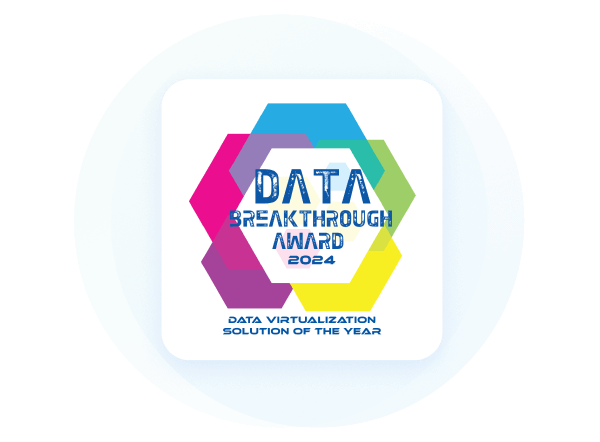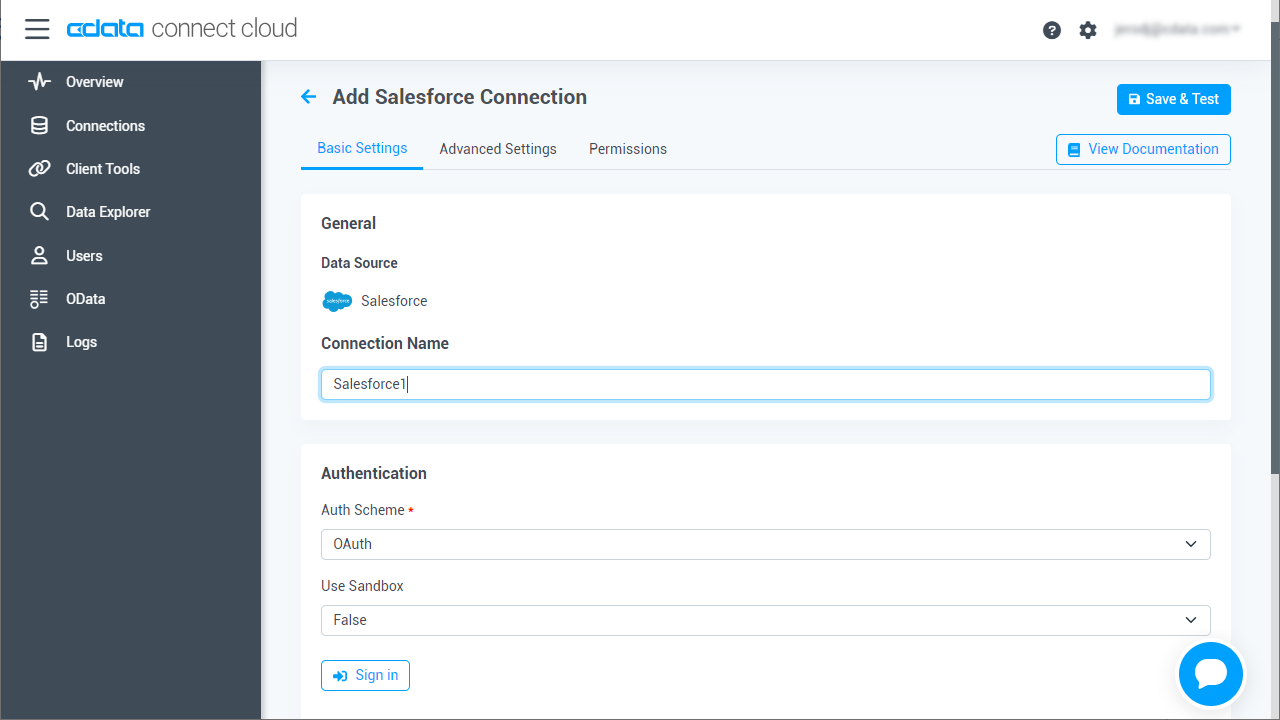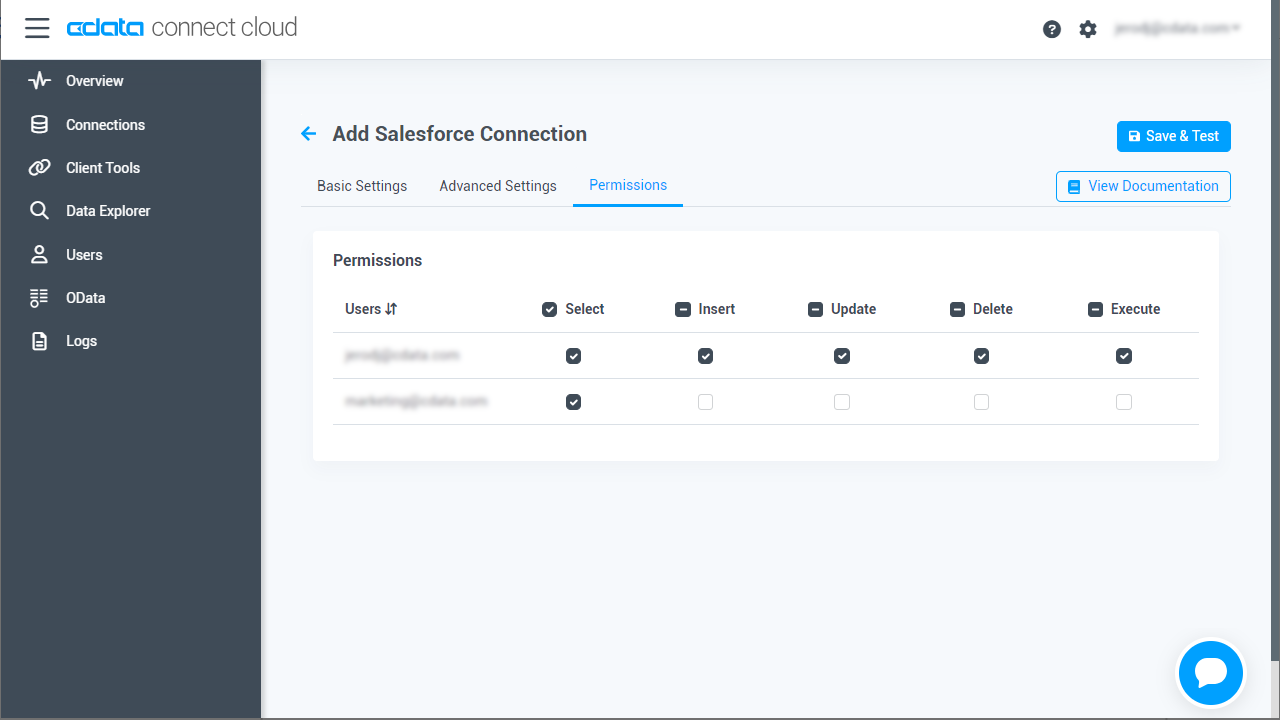Discover how a bimodal integration strategy can address the major data management challenges facing your organization today.
Get the Report →Import Elasticsearch Data Using Azure Data Factory
Use CData Connect Cloud to connect to Elasticsearch Data from Azure Data Factory and import live Elasticsearch data.
Microsoft Azure Data Factory (ADF)) is a completely managed, serverless data integration service. When combined with CData Connect Cloud, ADF enables immediate cloud-to-cloud access to Elasticsearch data within data flows. This article outlines the process of connecting to Elasticsearch through Connect Cloud and accessing Elasticsearch data within ADF.
CData Connect Cloud offers a cloud-to-cloud interface tailored for Elasticsearch, granting you the ability to access live data from Elasticsearch data within Azure Data Factory without the need for data replication to a natively supported database. Equipped with optimized data processing capabilities by default, CData Connect Cloud seamlessly channels all supported SQL operations, including filters and JOINs, directly to Elasticsearch. This harnesses server-side processing to expedite the retrieval of the desired Elasticsearch data.
Configure Elasticsearch Connectivity for ADF
Connectivity to Elasticsearch from Azure Data Factory is made possible through CData Connect Cloud. To work with Elasticsearch data from Azure Data Factory, we start by creating and configuring a Elasticsearch connection.
CData Connect Cloud uses a straightforward, point-and-click interface to connect to data sources.
- Log into Connect Cloud, click Connections and click Add Connection
- Select "Elasticsearch" from the Add Connection panel
-
Enter the necessary authentication properties to connect to Elasticsearch.
Set the Server and Port connection properties to connect. To authenticate, set the User and Password properties, PKI (public key infrastructure) properties, or both. To use PKI, set the SSLClientCert, SSLClientCertType, SSLClientCertSubject, and SSLClientCertPassword properties.
The data provider uses X-Pack Security for TLS/SSL and authentication. To connect over TLS/SSL, prefix the Server value with 'https://'. Note: TLS/SSL and client authentication must be enabled on X-Pack to use PKI.
Once the data provider is connected, X-Pack will then perform user authentication and grant role permissions based on the realms you have configured.
![Configuring a connection (Salesforce is shown)]()
- Click Create & Test
-
Navigate to the Permissions tab in the Add Elasticsearch Connection page and update the User-based permissions.
![Updating permissions]()
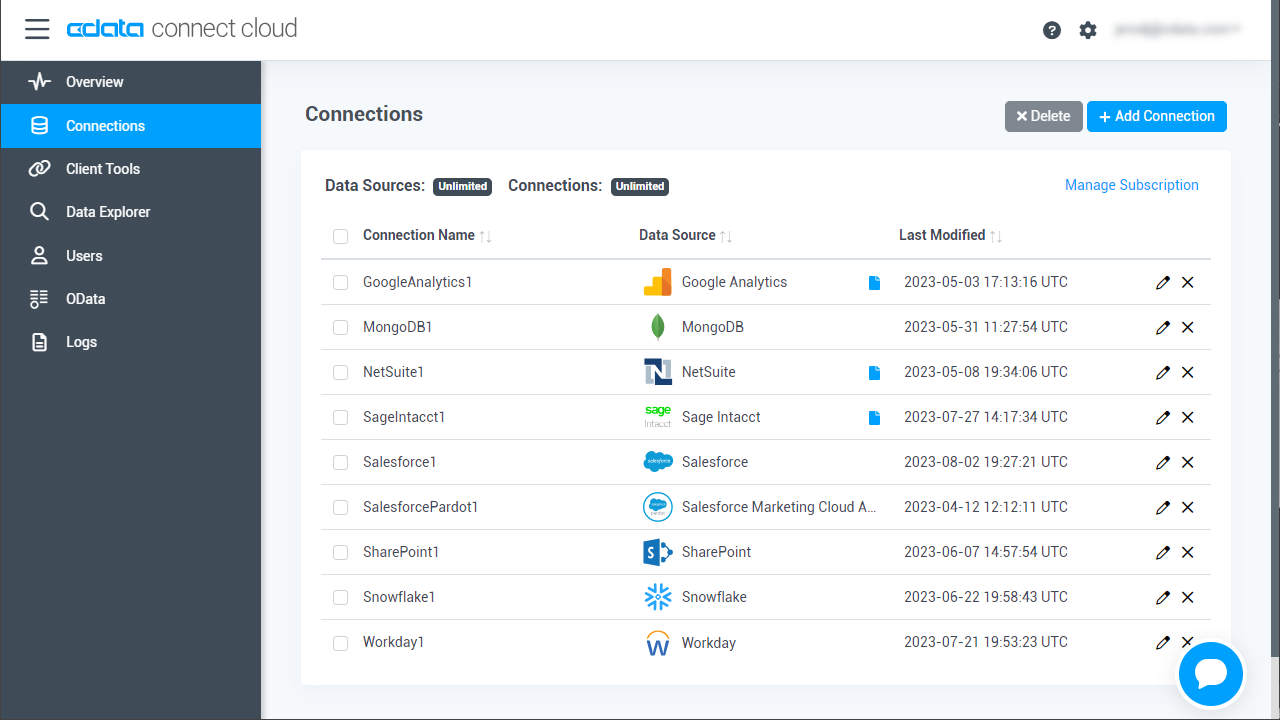
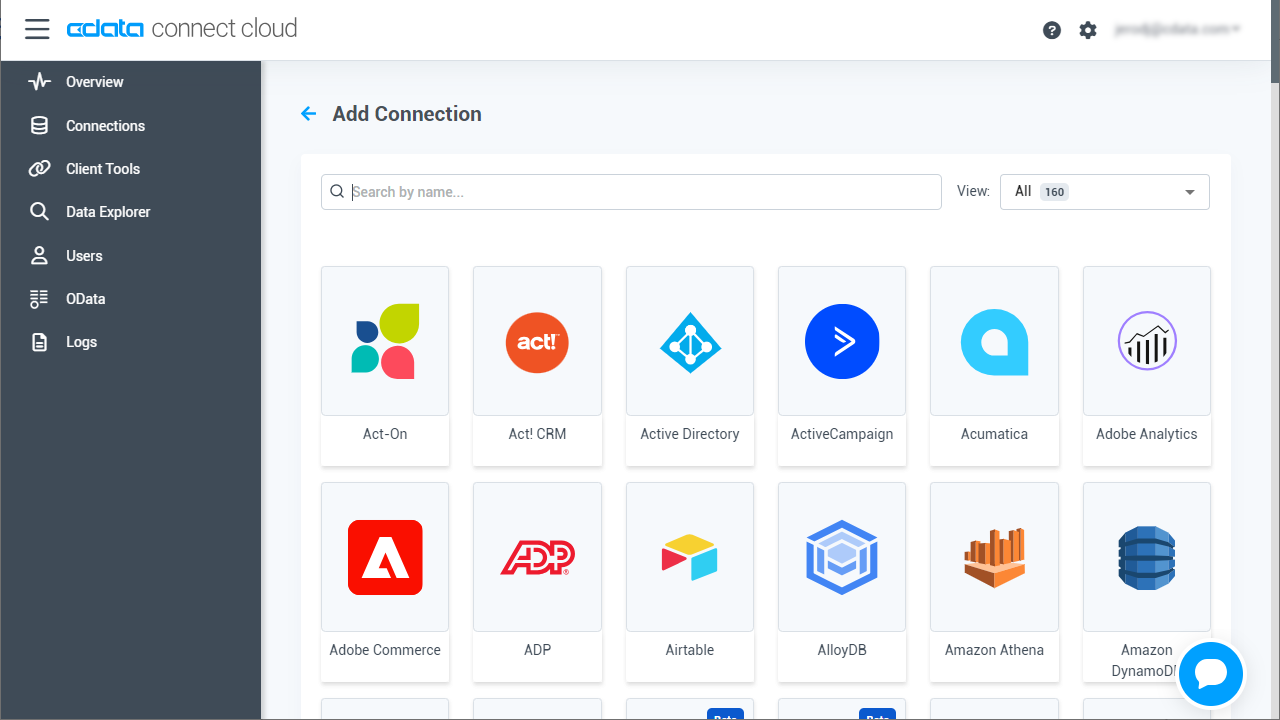
Add a Personal Access Token
If you are connecting from a service, application, platform, or framework that does not support OAuth authentication, you can create a Personal Access Token (PAT) to use for authentication. Best practices would dictate that you create a separate PAT for each service, to maintain granularity of access.
- Click on your username at the top right of the Connect Cloud app and click User Profile.
- On the User Profile page, scroll down to the Personal Access Tokens section and click Create PAT.
- Give your PAT a name and click Create.
- The personal access token is only visible at creation, so be sure to copy it and store it securely for future use.
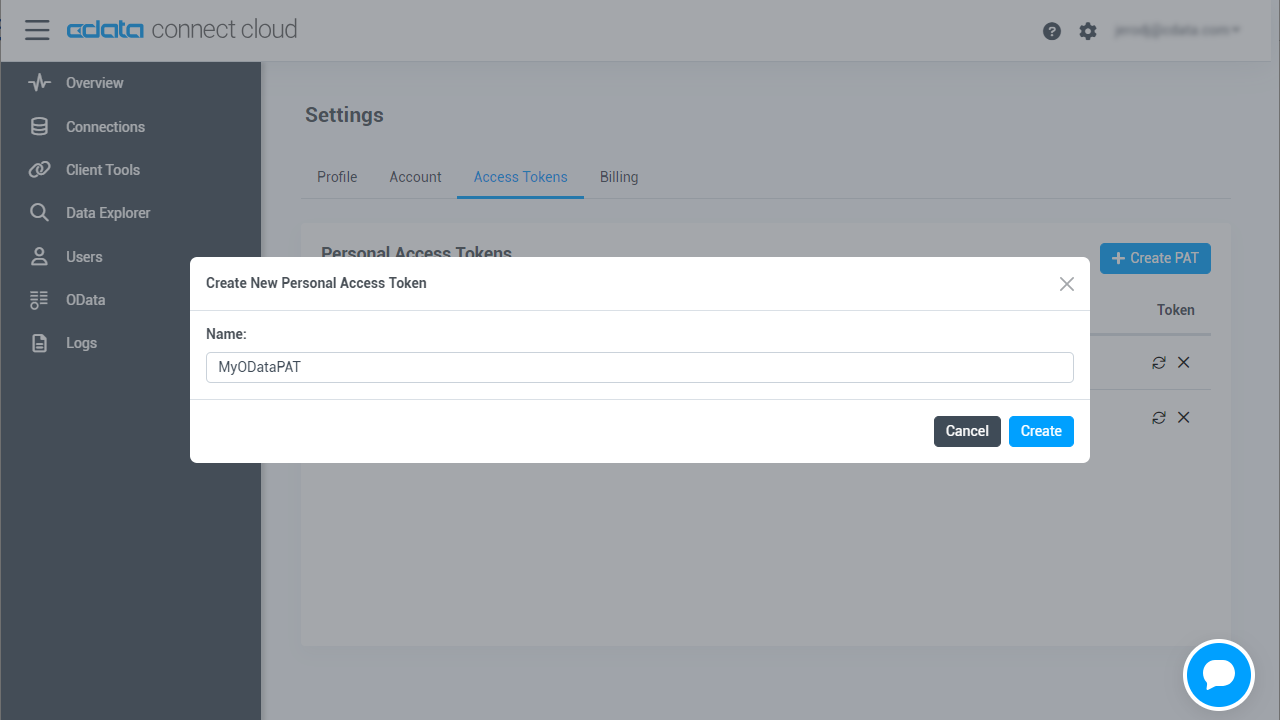
With the connection configured, you are ready to connect to Elasticsearch data from Azure Data Factory.
Access Live Elasticsearch Data in Azure Data Factory
To establish a connection from Azure Data Factory to the CData Connect Cloud Virtual SQL Server API, follow these steps.
- Login to Azure Data Factory.
- If you have not yet created a Data Factory, Click New -> Dataset.
- In the search bar, enter SQL Server and select it when it appears. On the following screen, enter a name for the server. In the Linked service field, select New.
-
Enter the connection settings.
- Name - enter a name of your choice.
- Server name - enter the Virtual SQL Server endpoint and port separated by a comma: tds.cdata.com,14333
- Database name - enter the Connection Name of the CData Connect Cloud data source you want to connect to (for example, Elasticsearch1).
- User Name - enter your CData Connect Cloud username. This is displayed in the top-right corner of the CData Connect Cloud interface. For example, test@cdata.com.
- Password - select Password (not Azure Key Vault) and enter the PAT you generated on the Settings page.
- Click Create.
- In Set properties, set the Name, choose the Linked service we just created, select a Table name from those available, and Import schema from connection/store. Click OK.
- After creating the linked service, the following screen should appear:
- Click preview data to see the imported Elasticsearch table.
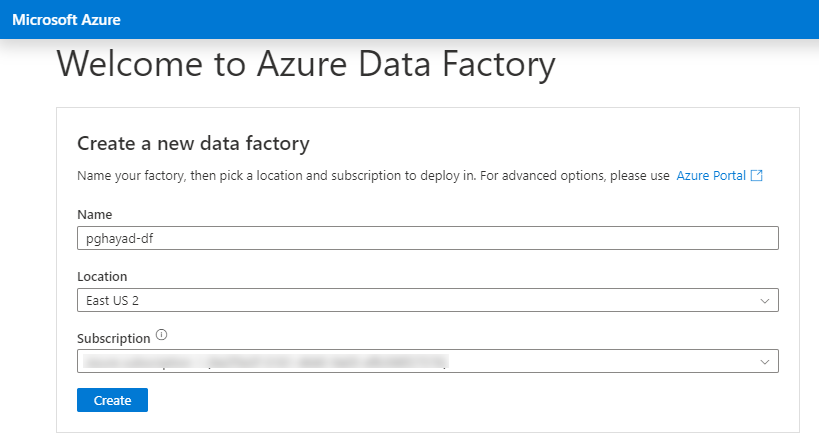
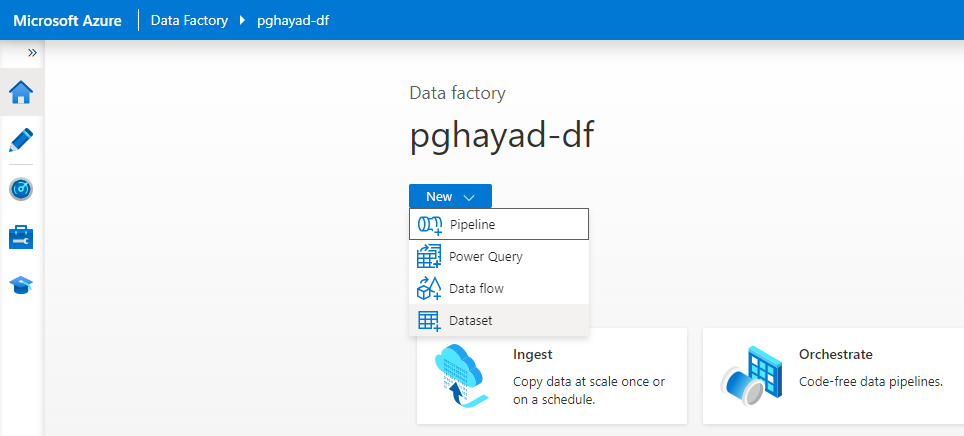
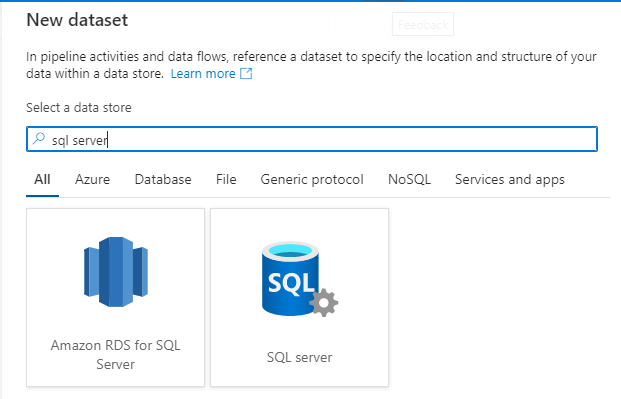
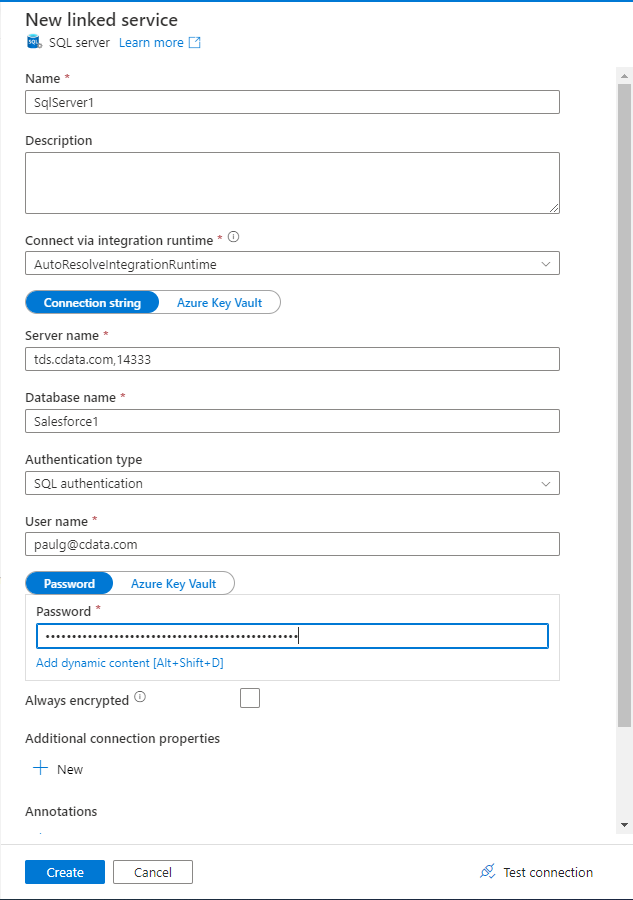
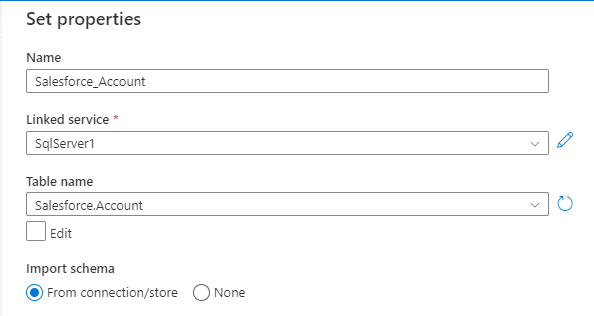
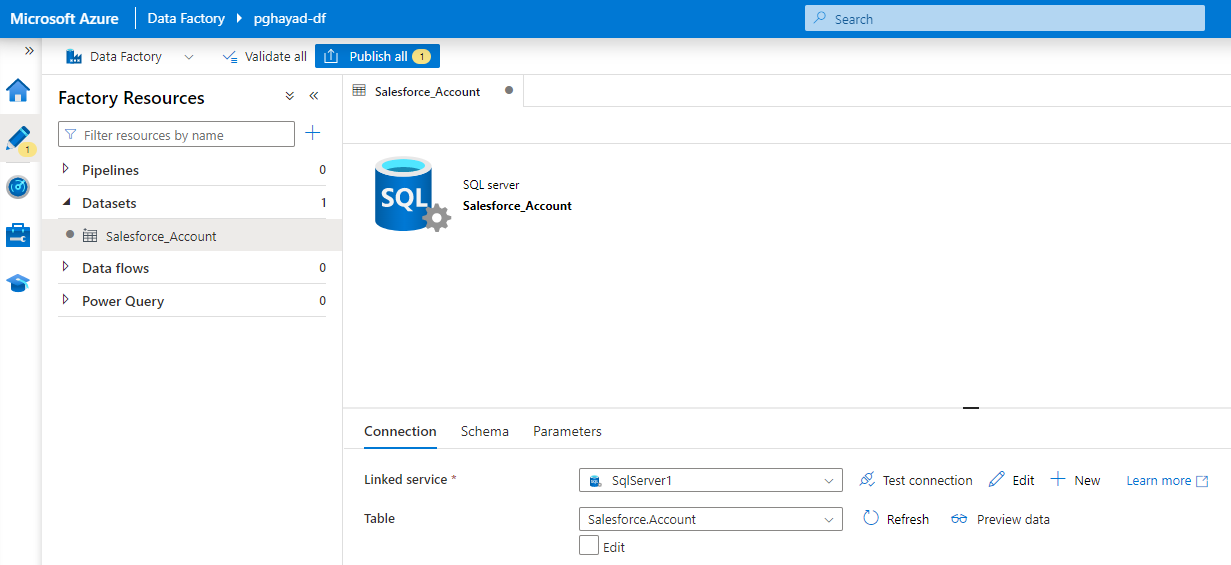
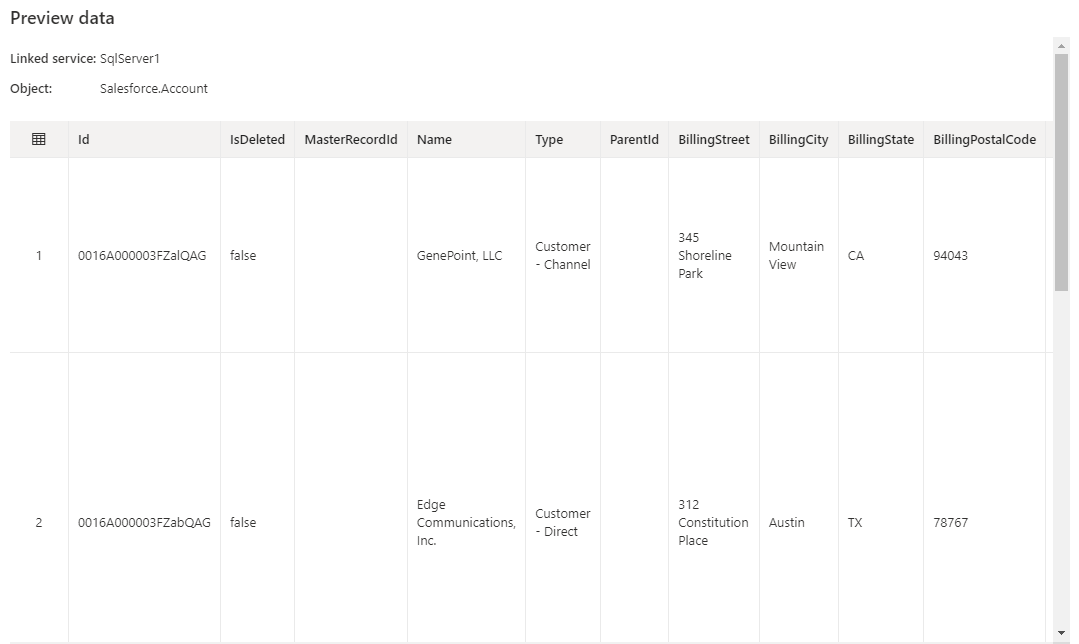 You can now use this dataset when creating data flows in Azure Data Factory.
You can now use this dataset when creating data flows in Azure Data Factory.
Get CData Connect Cloud
To get live data access to 100+ SaaS, Big Data, and NoSQL sources directly from your cloud applications, try CData Connect Cloud today!



